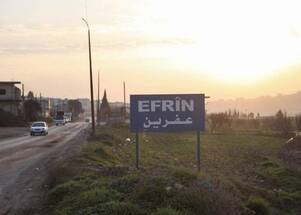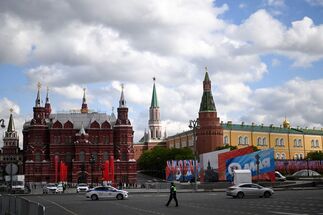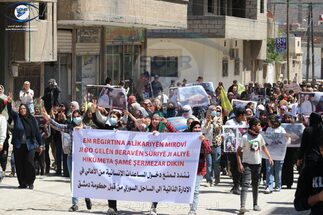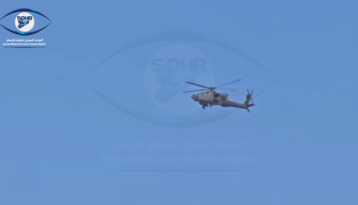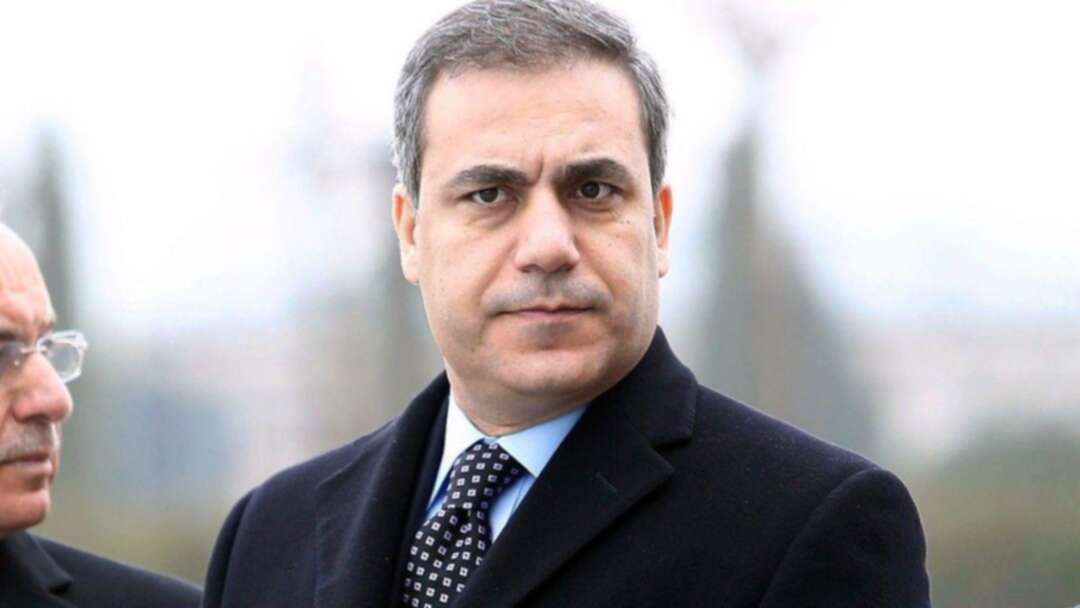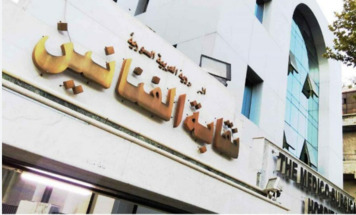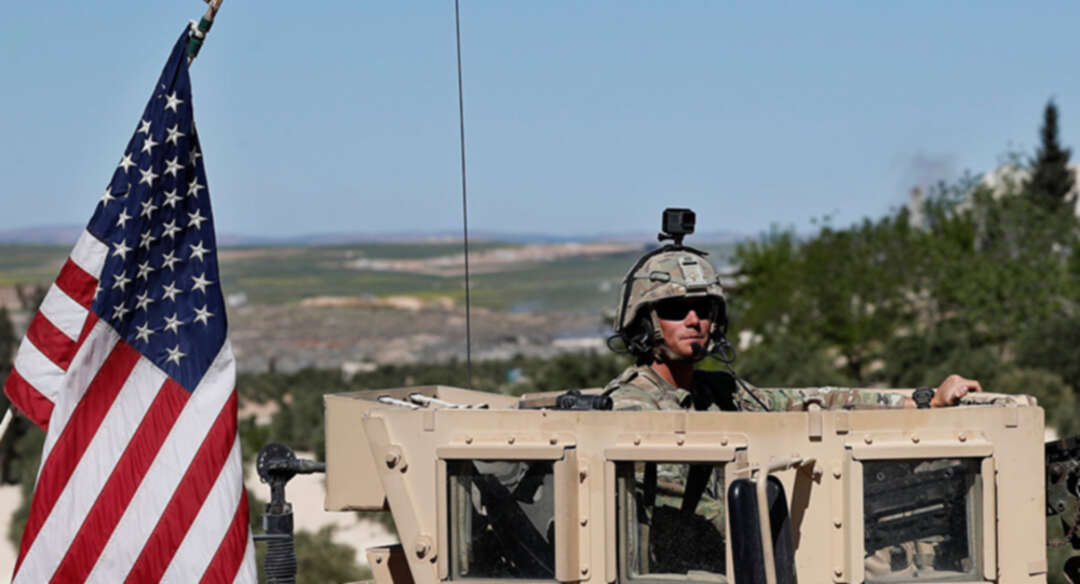-
Pentagon chief arrives in Baghdad amid US pullout from Syria
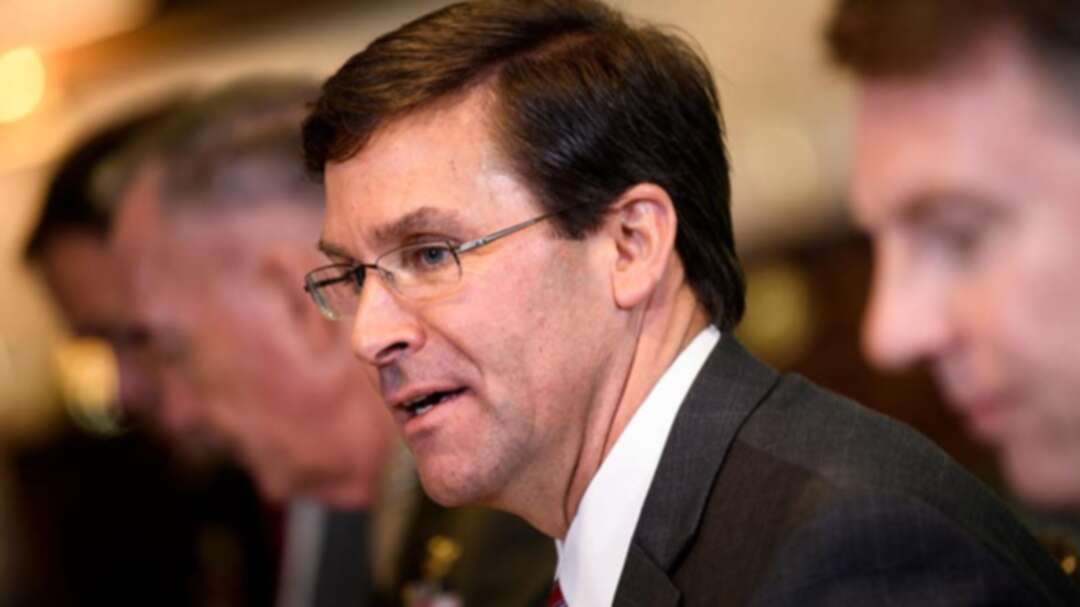
US Defense Secretary Mark Esper arrived in Baghdad on Wednesday, amid questions about how long US troops withdrawing from northeast Syria will stay in Iraq.
The Iraq military said on Tuesday that US forces crossing into Iraq as part of a pull-out from Syria do not have permission to stay and can only be there in transit.
While Esper initially told reporters the troops withdrawing from Syria would go to western Iraq to fight Islamic State and “help defend Iraq,” he said on Tuesday that Washington aimed to eventually bring the troops back to the US.
Esper is expected to meet his Iraqi counterpart as well as Prime Minister Adel Abdul Mahdi and discuss the US troop drawdown from Syria and the role Iraq will play in it.
“Our key priority with Iraq is encouraging the continued secure, stable, independent Iraq,” a senior US defense official said.
Esper’s trip also follows an agreement on Tuesday between Ankara and Moscow that Syrian and Russian forces will deploy in northeast Syria to remove Kurdish fighters and their weapons from the border with Turkey.
Hours after that deal was announced, the Turkish defense ministry said the US had told Turkey the withdrawal of Kurdish militants was complete from the “safe zone” Ankara demands in northern Syria.
The Russia-Turkey agreement struck in the Black Sea resort of Sochi endorses the return of Syrian President Bashar al-Assad’s forces to the border alongside Russian troops, replacing the Americans who had patrolled the region for years with their Kurdish allies.
President Donald Trump decided earlier this month to withdraw all 1,000 US troops from the region, a move widely criticized as a betrayal of Kurdish allies who had fought for years alongside US forces against Islamic State.
Since then, the Pentagon has said the Trump administration is considering keeping some troops in northeastern Syria to help ensure Islamic State and others do not profit from oil fields in the region.
Any decision to keep additional US troops in Iraq is likely to be heavily scrutinized in a country where Iran has been steadily amassing influence.
Iraq is in the midst of a political crisis.
Protests over high unemployment, poor public services and corruption erupted on Oct. 1, prompting a violent security crackdown.
Protesters blame graft and infighting among political leaders for failing to improve their lives even in peacetime, two years after Islamic State was declared defeated in Iraq.
“Iraqi politics are in a delicate state. There’s no Iraqi support for the country becoming a principal US garrison in the Middle East,” said Jon Alterman, Middle East expert at the Center for Strategic and International Studies.
However, Baghdad did not want to alienate Washington, which has been a key ally in fighting back Islamic State militants over the past five years, Alterman added.
The additional US troops would add to the roughly 5,000 publicly acknowledged American troops already based in the country, training Iraqi forces and helping to ensure Islamic State militants do not make a comeback.
You May Also Like
Popular Posts
Caricature
BENEFIT Sponsors Gulf Uni...
- April 17, 2025
BENEFIT, the Kingdom’s innovator and leading company in Fintech and electronic financial transactions service, has announced its sponsorship of the “Innovation and Sustainable Technology Solutions Competition (GU - IST Solutions), hosted by Gulf University at its main campus.
This strategic sponsorship reflects BENEFIT’s active role in advancing technological innovation and fostering sustainable solutions to future challenges. It also seeks to empower Bahraini youth by enhancing their skills, capabilities, and competitiveness in innovation and solution development—contributing meaningfully to the broader goals of sustainable development across all sectors.
As part of BENEFIT’s active involvement in the competition, the company has announced that Hanan Abdulla Hasan, Senior Manager of Public Relations and Communication, will serve on the competition’s supervisory committee. Her upcoming participation reflects BENEFIT’s forward-looking commitment to championing academic and professional excellence.
Commenting on the occasion, Hanan Abdulla Hasan, Senior Manager of Public Relations and Communication at BENEFIT, said, “We are privileged to support this pioneering initiative, which aligns seamlessly with BENEFIT’s enduring commitment to fostering innovation and nurturing the potential of Bahrain’s youth. Our participation is rooted in a deep sense of social responsibility and a firm belief in the pivotal role of innovation in shaping a sustainable future. Through such platforms, we seek to empower the next generation with the knowledge, skills, and foresight required to develop impactful solutions that address future challenges, in line with the United Nations Sustainable Development Goals 2030.”
Dr. Aseel Al Ayash Dean of the College of Engineering in Gulf University commented, “We extend our sincere gratitude to BENEFIT for their generous sponsorship and support of the Innovation and Sustainable Technology Solutions Competition. This contribution plays an instrumental role in helping us achieve the strategic goals of this initiative, namely, cultivating a culture of innovation and sustainability, encouraging efforts that address the imperatives of sustainable development, and enhancing the practical and professional capabilities of our students and participants.”
The event will bring together a diverse spectrum of participants, including secondary school students, university undergraduates, engineers, industry professionals, entrepreneurs, academic researchers, and subject matter experts representing a wide range of disciplines.
The competition seeks to inspire participants to develop and present innovative, sustainable technologies aimed at addressing pressing environmental, social, and economic challenges. It encourages the formulation of business models that integrate advanced technological solutions with core principles of sustainability. Moreover, it serves as a platform for emerging leaders, entrepreneurs, and innovators to contribute to the advancement of the Sustainable Development Goals, promote the ethos of responsible technology, and demonstrate its transformative potential across various sectors.
Attendees will have the opportunity to view a series of project presentations submitted by participants, covering diverse areas such as eco-friendly product design, smart and sustainable innovations, renewable energy technologies, water conservation and management, waste minimisation and recycling, green architectural solutions, and sustainable transportation systems. Outstanding projects will be formally recognised and awarded at the conclusion of the event.
opinion
Report
ads
Newsletter
Subscribe to our mailing list to get the new updates!

